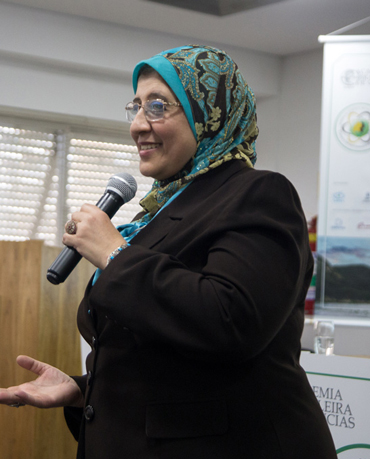
According to a Unesco global report, less than 30% of the total population inside scientific communities are women. Also, there is less females as awardees for prestigeous prizes as the Nobel Prize and others. Regarding to publication, about more than 60% of the work are signed by men. The situation is the same in case of patents and other achievements.
According to Egyptian chemist Amal Amin, founder of the Women in Science Without Borders (WISWB) movement, this inequality can be attributed to different and varied reasons depending on the country, including: family and societal commitments and culture; absence of successful networking which may help the participation and integration for women in science, especially during early career, when she needs more help and support; sometimes, the problems may refer to absence of effective cooperation between men and women in scientific communities which may help in further integration of women; absence of highlighting and amplification of success stories and role models which may help in sharing experiences to encourage young and mid career scientists or even students to complete their path way and scientific career; the education system and the common thought that women do not suit hard actions or fields whether in study or work; women might feel that they don’t need to chase their dreams; the expectation that they should form family and have children which are supposed to be their big priority and main target; sometimes women do not ask for their rights or the leadership positions and so on.
“The challenges are very high. Women in science should manage to cope with the difficulties inside the scientific communities which range between fighting for equal opportunities, funds and positions. Sometimes this is very hard to be achieved, and they have to keep struggling for better conditions and to be equal or even comparable to their males peers”, she said in an interview with ABC.
Amal Amin has extensive involvement with scientific research and seeks to do it globally, creating networks and partnerships. She highlighted the principles of the Women in Science Without Borders movement and spoke about the World Forum for Women in Science, first held in 2017 in Egypt, then in 2018 in South Africa, in Egypt again in 2019, and now in Brazil, in Rio de Janeiro, from 10 to 14 February.
She said that the situation in Egypt is much better than in other areas: the percentage of women in science reaches 46%, although this is related to the economic situation in which a large number of men prefer to work in the industry, because of the high wages.
The researcher explained the World Forum for Women in Science was originally founded to facilitate interaction between females and males (young and seniors) together with policy makers, NGOs, industry, all together to share in development of society and the globe with science for the sake of susainable development and its goals (SDGS), specifically SDG5 for gender equality.
“Our event is not just a conference but it is a science based-building community initiative to integrate science into society more effectively”, she said. The forum usually includes sustainable goals related fields, as water-food-energy-health-environment, and cutting edge researches are usually discussed at preconference workshops on training females on science communication and leadership skills.
According to Amal Amin, Brazil event was very precious for the development of the initiative, since for the first time it happened outside Africa.
“We need to expand women’s leadership in science. Sometimes, women scientists load are very high, as they are mothers and scientists, and you have to raise children in the right proper way and any defect may be referred to her busy schedule. However, now we have cooperation between spouses (wives and husbands) and good laws for maternity leaves and other matters. So we have to increase overall cooperation between males and females scientists and encourage mutual cooperation and joint projects to integrate both sides in scientific collaborations, shared projects for the sake of sustainable development and for sake of society ”, she said.
Read the text in portuguese:
Amal Amin: “Os desafios para a igualdade de gênero são enormes”
